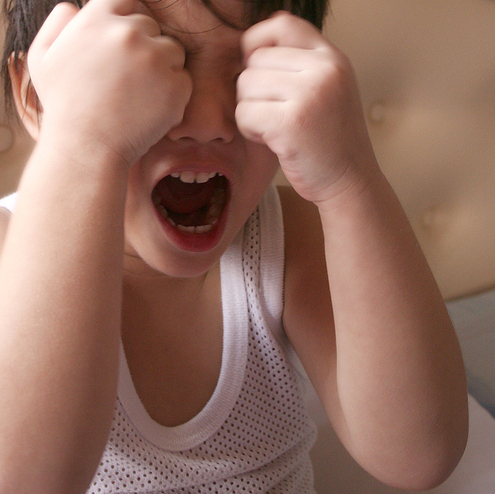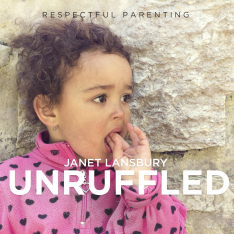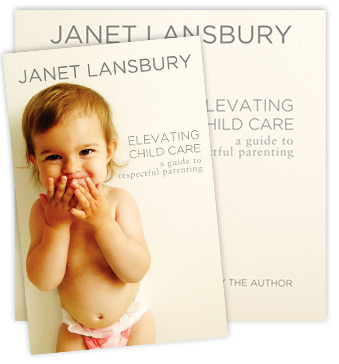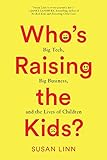Hi Janet,
I have a 3 year old son who is incredibly bright. He started talking very early and has been a fast learner, curious, and a great communicator. He is also very sensitive.
Recently, his caregiver has said that he has a very difficult time recovering from situations where he’s been fouled in some way or when he’s asked to do something he does not want to do. She knows this is normal behavior for a child his age, but she says what is abnormal is the length of his meltdowns and the intensity with which he seems to experience them.
At home when this happens, I get down on his level and try to honor his feelings: “I know you really wanted to keep riding your bikes and you were upset that it was time to come in for lunch. You would have really liked to ride bikes for longer…” It helps somewhat.
The kinds of meltdowns that concern me the most (and have for the past six months or so) are more specific than these kinds of typical toddler upsets and the real reason for my writing. He gets completely distraught when something spills and we can’t get it back into his glass. He flips out when we wipe it up, totally falls apart, and it lasts a long time. Again, we talk him through this like I mentioned above: “You want that water to go back into the glass. You are upset it spilled, etc.”.
He also gets very upset if we drain the water from the bathtub, and if the van that comes every morning to pick up a neighbor leaves when he’s not watching. He used to have to wave goodbye to his poop and pee but has let go of that one. He also used to get very upset if the dog ate his food that fell on the floor and would say he only wanted that specific carrot (or whatever) back.
It seems to me that there is a great amount of anxiety around impermanence — maybe an earlier than normal realization or grasping ideas about death or something? It breaks my heart to see him fall apart so intensely. It can also be frustrating and makes me worried about him. How can I help him through this? What do you think is going on?
Thank you so much for listening. I feel desperate for some advice. You have helped us so much.
Me: He sounds like a bright, sensitive guy processing feelings around control. It mostly seems very normal to me, but this stuck out: “It breaks my heart…” and “At home when this happens I get down on his level and try to honor his feelings” and also “I feel desperate for some advice…” My sense is that your heartbreak around this is causing you to over-respond… or respond with alarm or fear… or in a too careful, tentative, pitying manner… I could be way off, but this is what I’m getting from what you shared.
If he picks up these feelings in you (as children do, particularly the brighter, more sensitive kids), it will heighten all these minor I-don’t-control-this disappointments for him… make these scarier places for him to go… and, therefore, they will be more frequent and last longer… perhaps feeling more catastrophic, which is not what we want.
If you can focus on staying calm and normalize this behavior for yourself (his caregiver should do this, too), and then respond by speaking to his strength a lot more, you will be able to help him pass through this phase… That would mean not getting on your knees and helping him through the feelings every time he’s upset, but simply acknowledging, “Wow…you really didn’t like that milk spilling… and now you don’t want me to be wiping it up!” (As you’re wiping it up). Or, “You wanted to keep riding and I said you had to stop. You didn’t like that at all! You’re saying no, no, no to that.” Use the empowering tone I demonstrate in my podcasts.
In other words, encourage him to express these feelings as strongly and for as long as he likes… Almost want him to share longer, rather than worrying about this… Perceive the feelings as the powerful disagreements they are, rather than sad and weak. These are strong opinions he has about things, and it will help him if you can see them that way.
I imagine that more will be revealed about this phase later. But I would always take a look at changes that he may have experienced lately. For instance, was his toilet learning self-led?
Parent: Thank you so much for your response! I think I am often very irritated and or worried when these episodes happen. They just derail so much for us. Remaining unruffled is really the lesson for me. Tonight, out of the blue we drained the tub without an upset and he was very proud of himself.
His toilet learning was completely self-led and, oddly, the easiest thing for us. We put zero pressure on him, and he has done amazing. It’s been about a year. We followed your way and just had a lot of naked time and a potty available for most of his second year. He asked for undies one day and never went back.
The thing that concerns me about these meltdowns is that they have been around issues of loss or impermanence, and also very much around control. Thank you so much.
Me: You’re so welcome! Do you mind me asking what you mean by “they derail so much for us”? And also, what’s been going on in his world and yours? Anything remotely stressful that you can think of?
Parent: I guess I just mean because they last for what feels like a long time. And I have a hard time not getting anxious when he’s yelling and crying. It’s really hard not to feel like I have to fix it, even though I really try to resist that and know it doesn’t help. And when it happens in the morning (my husband goes to work very early, so most mornings I am alone getting him ready for daycare and myself for work), I am pressed for time and stressed about it. Although I am very conscious of not rushing him or telling him we are in a hurry, I’m sure he feels it.
Or when it happens at bedtime, it is also hard because there is a lot of testing around getting ready, brushing teeth, bathing, etc. And yes, life has been really stressful for a while. My grandmother passed away in December. He saw her in hospice, and that scared him to see her frail and with an oxygen mask. He doesn’t know she died because, to be honest, I wasn’t ready to have that conversation. She lived far away, and they had only met twice. But he knows we went to visit because she was very old, and I did say she “had come to end of her lifetime” once when he had some questions about why she was so old. We recently had to “re-home” our small dog that had been aggressive and had bitten D (he is a small, five pound dog so it wasn’t severe). Living with the dog made all of us tense and on edge for a long time. And my husband and I have been struggling in our relationship. We live somewhere far from friends and family and are finally slowly building some community here, but it’s been hard to not have help or a local support system. I know he feels all of this.
Me: For all of those reasons, I would perceive your boy’s meltdowns over the smallest things as the most helpful thing he could be doing for himself. This is how he is processing his feelings around all these situations. He’s dealing with quite a lot here, and he needs your support, which means fully accepting these meltdowns as normal and necessary and not taking them on as your responsibility to fix or calm or comfort. Let go, and let his feelings be for as long as they need to, so that he can release all the confusion, stress, pain, and loss. This isn’t about you doing something. Just perceive this accurately — as healthy — and usher it in.
Parent: Ahh. Yes. This makes so much sense. Thank you! New mantra: “This is the most helpful thing he could be doing. Usher it in.”
I share more about nurturing emotional health in my podcasts and books, No Bad Kids: Toddler Discipline Without Shame and Elevating Child Care: A Guide to Respectful Parenting) and extensively—SO much support for you here—in my No Bad Kids online course ♥















Amen! I particularly like the Sherlock Holmes kind of questions and the total sincerity in the answers, even if doing so she had to find the way to her own vulnerability as an adult. I am so happy about this because I am sure this is the best way to really, but really, help families into a culture of deep respect and true love.
Thank you, Fernanda. It’s wonderful to hear from you! For me, allowing the feelings to just “be” is the biggest challenge, even with my own children who are now much older than toddlers (23,19 and 14). It is usually not intuitive for me.
My child also has these extreme, emotional meltdowns over small, inconsequential things. However, What I don’t understand is how long should a tantrum continue? My son, who is 4, will cry, scream, kick at his door, and will even pee his pants during one of his episodes. He can go on for at least 45 min. There is nothing we can do to stop it either. I have tried ignoring it. I have tried to talk to him about recognizing his feelings and understanding what he is going through, I have let him just cry on me…. nothing works. We are obviously doing something wrong but I am at a loss.
This really resonates with what we’ve been going through with our 3 year old too. I feel like I totally get it when I read your posts but struggle so much to put it into practice since having a second child. We’ve had so much change in our lives too in the last 6 months and it has really impacted my daughter’s behaviour. While I understand her meltdowns are normal and healthy I do struggle to find the line between compassion and empathy and knowing which boundaries to enforce (eg needing me to fall asleep at night). When I want to enforce a boundary I often think about all the change that we’ve had and think that maybe it’s unfair to expect her to follow the boundary. And sometimes I’m ok with being there but other times I can’t handle it after a hard day. I’m so tired and impatient and find it so hard to do and say what I know I should be doing and saying when I’m so tired. I’m not even sure what I’m trying to say here, just that it’s so good to have advice like this and hopefully I’ll be able to get better at ushering in the meltdowns.
Hi Alanna,
I just want to share that I’m going through the same issues right now with my 3.5 year old and 1 month old. She loves her brother but seems really angry/sad with me and has been pushing boundaries since the day I got home from the hospital even though she was GREAT in the hospital. We’ve had lots of tears shed on both sides, lots of yelling too. I just struggle with letting testing behaviors go, which I feel makes her feel MORE insecure rather than loved, and enforcing the rules in a way that doesn’t crush her spirit since if I enforced every boundary, I’d be criticizing her all day long. I’m also struggling with some post-partum depression so that doesn’t help!
Anyway, just wanted to let you know you weren’t alone in these questions and hopefully Janet can provide some insights! I’ve read every single article on here about sibling issues but haven’t found exactly the advice that clicked yet…
Yes, this can be an incredibly challenging time for the whole family. Probably the most challenging time you will experience. But I would not ease up on boundaries… quite the opposite. I strongly believe that children need an even steadier, cozier “nest” in these transitions. The boundaries are what will offer the opportunities your child needs to be able to express all the feelings she needs to share with you and, by doing so, she will sleep more easily, etc. Children need to know that they still have capable leaders when we are tired and so busy, and overwhelmed ourselves. So, in difficult times like these I would be even more clear and fearless about respectful boundaries.
Here’s a post that might be helpful: https://www.janetlansbury.com/2013/10/the-healing-power-of-a-toddlers-tantrum/ Also, #10 in this post: https://www.janetlansbury.com/2013/04/helping-kids-adjust-to-life-with-the-new-baby/
Hang in there!
Thanks Janet and Emily, hope things are getting better for you Emily, I’ve definitely found that being way more breezy and accepting of tantrums has helped enormously. Even if she’s still really upset and expressing herself, it has felt like a real burden has lifted knowing that I don’t have to help her fix it or over-empathise – usually I’d be feeling too tired to do that and it made me grumpy and frustrated and guilty, which made me way less able to be accepting and breezy. Thanks!
I can relate to what you’ve wrote here. I have a hard time some nights with my 6 year old son. We too have had quite a few changes in our lives this last year or so. So there are nights that I will sleep in his room when he’s asked me to. But I too fight with myself about whether or not I should sleep in there or not. My thought is that he is only little once, and that I do not want to be a part of creating fears for him. If he’s in need of his mother’s security for a night or two, then so be it. But sometimes there are nights that I feel that he is just sticking to that sort of routine that we started. It can be confusing at times. I hope you find the way that works best for your family. Take care.
Hi Janet!
LOVE THIS POST SO, SO MUCH! Especially the part about welcoming the feelings, seeing them as “powerful disagreements”, and “strong opinions”. Acknowledging, welcoming without having to fix, calm. Also, taking a birds eye view of broader transitions in the family & household. This is perfect timing for us with O & N! We really appreciate you!
Oh, yay! I’m thrilled that you like this, Katrina, and it’s wonderful to hear from you!
What an interesting post for the way that the presenting issue was more representative of field phenomena…I learnt from the way you respectfully dug a liitle deeper on those leading edges to uncover more of the story—(& we all have these..! )
Im totally interested in Early Childhood Ed, (was a pre-school teacher) and I too was a bit perplexed initially reading this lady’s story—she seems to be engaging with her little guy…
So im pleased to find a post inetraction where the bigger picture of Family happenings are addressed & considered…Thanx, a great vignette to remember
When my middle son was about two, he got lost for a few scary minutes at the beach. That night, as we were setting up our tent in a campground, we noticed a pole was missing. That set my son off and he cried his heart out, seeming really scared. I think of those two incidents as being related and I think it might apply to your situation, too. I also wonder if some old feelings of loss and/or loss of control are being restimulated in you by your son’s meltdowns. If so, it could be harder for you to stay present with him — unless you got some help in expressing any of those leftover feelings (if this applies at all.) Janet, I just love the phrase, “usher in” the feelings. So helpful in parenting and in life!
Oh Janet, once again your post gets to me in perfect timing! I also struggle a lot to just let feelings be… it is not intuitive for me and has taken me a long time to apply this in the middle of the situation, that’s why I love to read your posts because I always find new tools (words) to say for the next time. But most of all, I find the encouragement I need. I’ll practice the ‘usher in’ the feelings!
Thank you, thank you!!!
Great post. Always a bit of a struggle with the ‘terrible twos’, although they should be called the terrible ones, twos and threes sometimes 🙂 Appreciate the content and love your posts!
This was a very relevant post for me. I have a 2-month old son and two older boys, ages 2 3/4 and 4 3/4. I’m so grateful to have been led to your site and Facebook page. SO many helpful essays my husband and I have both appreciated. I just bought a copy of No Bad Kids and am eager to read. I’m just so happy to have these tools in caring for my little baby and wish I’d had these tools with my younger two. Anyway, I want to say Thank You and also to ask about a situation that’s been plaguing my husband and me since a little bit before the birth of our youngest. Our middle son Bowie has been quite a challenge lately – constantly changing his mind about every little thing and being extremely demanding. He has always been prone to quick anger and I’m afraid that my husband and I have in the past “given in” to him to appease his fiery temper and because it was the easiest thing to do at the time. I think with the arrival of the new baby and changing his room to join his big brother, the transitions have been overwhelming. I’m thinking his indecisiveness and tantrums and demands may have to do with him needing boundaries and security? I’m just not sure how to go about it. Some examples of his behavior are saying that he “can’t sit” every morning at breakfast – he wants to be in someone’s lap. When we are about to start our dinner verse, he screams that we can’t say it or that he must say it alone. He screams at his brother if he tries to join in. Last night he said he didn’t want to be in his crib; he wanted to be in bed with us. I thought perhaps he was getting sick so I laid down with him, but after a few minutes, he wanted to be in his crib. Then back in our bed. Etc. Do you think it’s boundaries that he needs? Or more one-on-one attention from me now that I’m so busy with a new baby? Both? I’m just feeling at a loss of how to best meet his needs… I won’t even go into how I also am feeling disconnected with my oldest son…Going from two to three children has been so hard for me!
Really helpful post – thank you for the great work you do!
This is truly valuable advice. I only came across your site last week so my daughter has not been raised the RIE way since birth but I would like your advice on the below as I want to start implementing the RIE approach.
I have a daughter who will be turning 2 soon and she has recently started school/crèche (her second month – she goes half day, 3-4 times a week).
She has always been on the clingy side and especially clingy with me. This is part of the reason I decided that she needs school so that she can be more sociable as well as get the interaction with other kids her age.
Since school (on and off sick – away for a week at a time on some occasions) I have noticed some alarming behaviour. She seems so anxious and clingy to the point that she becomes aggressive towards her dad and I.
During the day but especially at night she gets up crying asking for milk, then she gets her milk holds it and will ask for water, takes that and holds it asks for something else—basically each time she gets the previous thing she asked for she asks for something new. But she makes a point of trying to hold everything she has asked for so tightly (as if someone is trying to take them away from her). Holding all these things asking to go down then to be carried then to dad and back to mum, asks to see the moon or anything else that she thinks of. Screams and cries inconsolably and uncontrollably, these cries are so painful and sounds as if she is really so hurt and upset. She gets so angry and starts to hit me on the face or pushes me away but still wants me to carry her. I try talking to her in a calm way saying things like “I am here for you, I understand you are upset. You are going through many changes. School is a completely new environment for you…” etc. (this was after I read some of your work and listened the podcasts last week).
If at night she eventually she grows tired and lays down everything that she’d asked for, milk, water, cell phone etc. on the pillow then wants to sleep next to all those things and doesn’t want me to remove them.
But during the day its tantrum after tantrum, when she stops crying about the above, she will then cry to watch TV and then when she stops crying about that and will she cry about something else.
I would love to hear your thoughts on how I should approach this.
Thank you for an excellent piece. When we moved far and away from ‘home’, similar situation ensued with our then 4 year old. My wife and I had to stop and think about why this was happening as, at least in our view, we were giving them full attention and time. Loss of familiar surroundings and objects fuels fear of further loss. We realized that while we were giving them all the time they required, it was not the actual case, being distracted by computer or phone. So, we did two things:
1. Free our minds and hands when the children spoke, and paid full attention to them;
2. Got involved in their play time.
Result: Within a week, all issues were resolved. Needless to say, we are well settled now.
Sounds great! Thank you for sharing, Fazal.
Hi Janet! I am so pleased I found your Facebook page. I have been reading you for almost 1,5 year now and you have helped me very much with putting another perspective to my 3,5 years old son’s behavior. He is very funny, strong opinionated and physically strong. We have engaged him, since he was too young, to everything we had to do or everything that was happening etc and he seems to understand everything in a very bright way.
Last year our home and all our belongings were completely burnt down during wildfires and we live at my sister’s home until we prepare our new home in 3-4 months. He was with me while leaving our old house right 5 minutes before the fire came and so, we explained to him that our house was damaged and we tried to keep stability ever after by doing our routines in just another place… He had a very easy transitioning to his new school since we moved far away from our old neighborhood.
The problem is that as he grows up he becomes more and more difficult to “handle”… We just returned from our summer holidays that were totally disaster as exhausting! He seems to have trouble to accept no as an answer and he has meltdowns that long toooo much! Every single daycare thing is a struggle: brushing his teeth, putting on his T-shirt, putting off his night diaper, the sunscreen etc The other thing is that he throws things because he gets angry when he is not allowed to do something and this is a behavior we cannot accept because it is dangerous and it is no good to destroy things,
We are on the edge of our nerves and he seems to know exactly what button to push! Me and my husband are not every time in the same side and we are very often both of us trying to solve a situation. I am not sure if this a normal toddler behavior that we should accept or we have failed in discipline and boundaries… I don’t know how to respond to all this “crazy” behavior because if I oppose to him there is too much tension and conflict and if I am loose I am afraid I show him that his behavior is allowed to continue, maybe I make projections(?). I am stuck between acceptance and setting boundaries. Do you have any advice???
This is my 2 1/2 year old son to the tee! He is generally very calm and independent, but one or two times a day, he will completely lose it over something seemingly small (like spilling a drink or the dog eating a pretzel he dropped). I am generally pretty calm when he does this, I acknowledge his feelings, and will let him go on for quite some time without trying to “fix” things for him. I know the general consensus is to let him work through it without intervention, but he gets to the point of breathlessness, and choking on his own tears if I don’t do anything. Any suggestions on how to help him while still allowing him to work through his feelings?
I have been reading your stuff non stop for the past 2 weeks since I found your website! I have an adopted daughter and so I know some of these principles may be different with her as she has trauma and neglect that plays into her meltdowns a lot. But I am wondering how long to let meltdowns last and what I should do during them rather than respond emotionally. I often have responded with acknowledging the feelings with her but then maybe being too involved by holding her, rubbing her back, etc. Is my response making her meltdowns worse in the long run as then she may use it to seek my attention? I’ve wanted to repair the hurt she’s had by setting a foundation that I hear her and see her and I’m there for her but I wonder if over the past year of her being our daughter if I’ve made her meltdowns prolong? She could sit there and cry/wail for an hour if I let her until I swoop in to be present and hold her and that has brought her comfort. I’m torn as to what to do.
This summes up that children are amazing mind readers! They can read our minds, they can sense our feelings. Scary!
Wow Janet, I really enjoyed reading your response to this Mother, who was so worried in the beginning of this story. I completely agree with all of the things you explained to her. I had my own answers to her worry’s, and I do think that we have the same outlook on how children should be allowed to deal with their own issues in life. We should be teaching them to embrace their own feelings, that way they will grow up to know how to deal with life. I believe that many kids pick up their parents ways, instead of learnimg their own ways. This ends up causing more problems later in their lives, because they haven’t learned their own personal way(s) to cope. This I believe can cause kids whom later become adults, confused, in need of therapy, and possibly even having more related problems because they never learned how their own feelings work. It’s as if they’ve copycatted their parents issues and coping mechanisms. Thank you for such great advice! Loved reading this!
He’s struggling with things disappearing and mom says they have given away the family’s dog. I would like to hear more about that …? Janet your thoughts?
Thanks so much for posting! My daughter, who turned 2 in April, also “falls apart over the smallest things.” She has extreme reactions to very simple things. For example, this morning her favorite teddy bear fell on the floor just 6 inches from her feet, but she started whining and screaming. And when she’s playing with me for a bit and her mother walks in the room, she whines and says “walk away.” When we’re listening to music or watching Sesame Street, she whines/cries/screams when a song or video is over. I’m wondering if there’s anything we can do to help her cope with these very simple situations – the constant whining is tremendously emotionally exhausting!
My son has just turned three years old last February. He is a very bright boy. I have a recent concern I would like to pick your brain about. I believe that my son is starting to miss me when I go to work so he is angry at me when I get home. We have a goodbye ritual where him and his father walk me out to the front step and wave goodbye but as of the past week he seems mad at me and upset with me and wanting to stay away from me when I get home in the evenings. If he is awake when I get home he usually greets me with a big hug and a kiss on the cheek . But recently he has been falling asleep before I get home . My husband is a stay-at-home dad and there is no current activity in our lives that I believe would be causing this type of reaction. I’m also curious as to whether it’s possible that because I suffer from Night Terrors if it could possibly be a genetic trait. He wakes up in the middle of the night crying hysterically sometimes and will not give any explanation as to what has upset him . It’s similar to how I feel if I wake from a night terror . I appreciate your input and look forward to reading a response if you are able.
This is my favourite story and advice to match. I’m sure It just rings so true for so many parents including me.
Thank you for sharing this.
My pleasure! Thanks for your kind words!
My husband and I have been in marriage counseling for 2 months and we’re trying to make it better. We have a three year old who is constantly acting out in negative ways and not following our instructions. We know it’s because of the stressful home environment. What can we do to make the home environment more positive when we don’t seem to agree on anything when it comes to parenting? We come from two very different cultures and constantly disagree on everything involving parenting-from the food she eats, to when she sleeps, what she learns. What can I do to help our daughter?